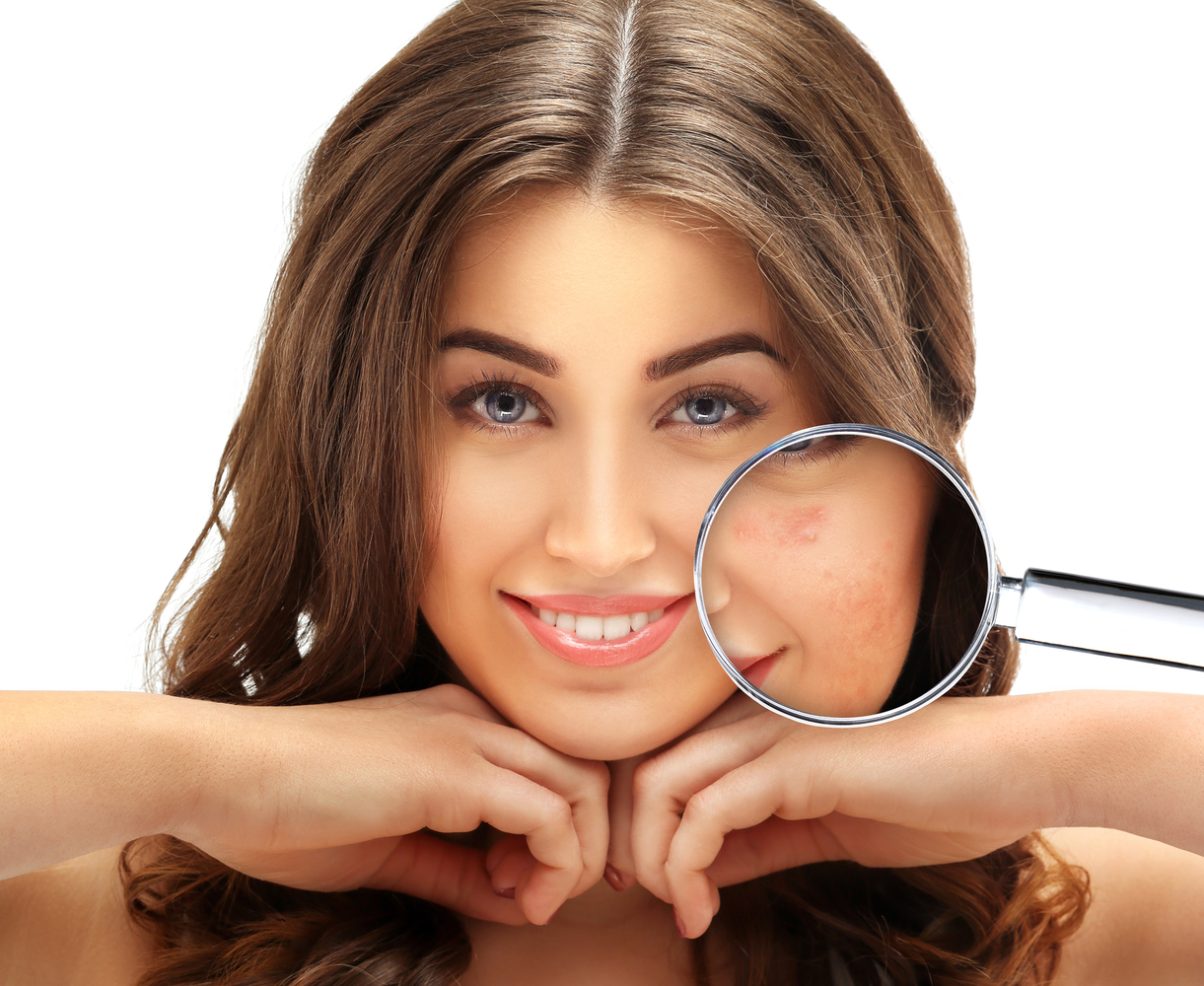How To Remove Blemishes On Face
A skin imperfection is disfavored. It is emotionally upsetting to have unsightly blemishes on your face. A blemish is any mark on the skin. There can be blackheads, whiteheads, pustules, age spots, or post-acne marks. Most blemishes are harmless, but some may indicate underlying health problems. We all get blemishes eventually. This post will address all your concerns about blemishes.
What Are Blemishes?
The primary doubt should be answered first, and that is, “what are blemishes?” Blotches of skin discolorations caused by acne or other skin conditions. In general, they appear on the face, back, chest, upper arms, or in any part of the body with hair follicles. Many people suffer from face blemishes. But, when treated properly, one can live a blemish free life.
The following are some symptoms of blemish-prone skin –
• An uneven skin tone
• Discoloration of the skin
• Eczema
• Patches of red or brown skin
• Skin associated with inflammation
• Inflamed and painful pustules
• pus-filled bumps on face surface
Blemishes and Their Kinds
As we know, people have different types of blemishes. Scars left behind by acne lesions are commonly found on the face. Other types of skin blemishes include –
Acne Marks:
Skin damage results in scarring of the dermis layer. Scarring is caused by anything that opens up the skin, including pimples and wounds.
Blackhead:
Blackheads form when the plug of skin cells and sebum enlarges and widens the pore.
Whitehead:
A whitehead is a closed comedone since it has skin on top, whereas blackheads are open comedones.
Papules:
Papules are small, dome-shaped bumps on the skin. Brown, purple, pink or red papules may form a papular rash.
Acne Pustules:
Those with pustules have white or yellow bases. As a result of oil, bacteria, and dirt getting trapped in pores of the skin, blood cells are attracted to fight infection.
Nodular Acne:
It is characterized by large, painful bumps in the skin. Solid nodules larger than papules are present. Scarring is common. Nodules include skin tags and warts.
Sebaceous Cysts:
Bacteria and white blood cells are all found in cysts. Cysts last for months and are very difficult to treat. A cyst can be epidermoid, ganglionic or sebaceous.
Pigmented Blemishes:
In hyperpigmentation, dark patches or uneven skin tones are visible due to an excessive production of melanin.
Age Spots or Liver Spots:
The age spots on the body are often small, dark spots that form after being exposed to the sun. They are a common form of hyperpigmentation that can occur in people under 50 years of age, as well as in people over 50.
Melasma Spots:
Pregnant women often experience melasma. Due to hormonal changes and sun exposure, they develop a brownish color.
Identifying Blemishes By Their Colors and Their Meaning
The color of a blemish provides clues to its cause, as well as its occurrence. Here are the most common blemish colors you’re likely to see:
Red:
Eczema or rosacea can cause red blemishes on the skin. Ingrown hairs, cold sores, pimples, pustules, and allergic reactions are other types of red blemishes on the face.
Brown:
Hyperpigmentation causes brown blemishes by causing an increase in the production of melanin. A brown blemish is typically caused by either age spots or melasma.
Black:
As a result of hyperpigmentation, the skin in a particular area appears darker than the rest. A dark spot or blemish might be surrounded by a red or black raised dot. Black blemishes can be classified into three types: lentigines, melasma, and post-inflammatory hyperpigmentation.
White:
A fungal infection or other reason may result in white blemishes on your cheeks or a large part of your face. One type of white blemish is a whitehead.
Reason Of Blemishes On Faces
Numerous factors that lead to the clogging of pores on the face, causing blemishes. Here are the reasons why skin blemishes appear on the face:
• Genetics: Symptoms of blemishes can be inherited. Fabry disease, a genetic disorder that causes dark, red spots, is an inherited disorder that occurs due to gene mutation.
• UV Exposure: Exposure to the sun’s harmful UV rays can cause blemishes and hyperpigmentation on your face.
• Overproduction of Oil: Pimples appear when the sebaceous glands of the skin produce excessive amounts of oil, resulting in their clogging with dirt and dead skin cells.
• A hormonal imbalance: Blemishes are most commonly caused by hormonal changes during pregnancy, menopause, metabolic shifts, and menstrual cycles. By increasing production of oil, androgen hyperactivity offers the perfect breeding environment for bacteria, leading to blemishes.
• Eating habits: Skimmed milk, for instance, can cause acne in some people. Papules and pustules may also result from high sugar intake and carbohydrate diet.
• Specific Medications: As a side-effect, some medications such as corticosteroids can cause acne.
• Allergic reactions: Allergies to some foods may result in skin irritation or bumps.
• Inadequate Skin Care Routine: Throughout the day, your face accumulates dirt, pollution, or dust. Insufficient skincare can lead to face blemishes depending on your skin type. Also, heavy makeup clogs your pores, causing your face to blemish.
How To Get Rid of Blemishes On Face?
Another doubt might pop up in your head, that is, “how to get rid of blemishes on face?”. Blemish-free skin comes from prevention. You can try out some simple, yet effective home remedies. Here are a few tips to remove blemishes from your face naturally:
Hygiene:
To prevent blemishes, you should practice good hygiene around yourself. Cleanse your face thoroughly in the morning and at night. Change your pillowcase every week to avoid getting infected with bacteria.
Dietary Changes:
Healthy diets rich in vitamin E and C can help to keep your skin clear and free from blemishes. You should also avoid milk, cheese, and sugars, which may aggravate your acne.
UV Protection:
Sun protection is crucial. Use a broad-spectrum sunscreen to prevent sunburns and blemishes
Choosing the proper skincare regimen to prevent blemishes:
One of the best home remedies is maintaining a proper skincare routine. Adapt your skincare routine as per your skin type and dermatologist’s recommendations. Additionally, look for oil-free and non-comedogenic products that won’t clog your pores.
Regular Chemical exfoliation:
Regular exfoliation and keeping pores clean are necessary.
Staying Hydrated:
Keep skin blemishes at bay by drinking 3 liters of water each day to stay adequately hydrated.
Keep your hands off your face:
When you have bumps on your face, avoid touching them all the time as it may spread the blemishes further.
Treatment to Remove Blemishes On Face
Using these options and remedies, we can get rid of face blemishes fast. For information on the best treatment options for you, it is essential to visit your dermatologist.
Topical Medications:
The dermatologist prescribes topical medications to face blemishes in the first instance. Blemishes of mild to medium severity are generally treated with topical creams or lotions containing Vitamin A. Adapalene, tretinoin, and tazarotene are all examples.
The dermatologists suggest using salicylic acid and benzoyl peroxide creams to treat blemishes. Topical creams and gels reduce inflammation and kill the bacteria inside the pores.
Oral Medications:
Dermatologists might prescribe oral medication for people with severe blemishes. Within six weeks, results can usually be seen with oral antibiotics. The course duration of antibiotics varies from person to person. The doctor may also suggest birth control pills if you have particular blemishes. Blemish-fighting creams that contain Resorcinol, Azelaic acid, and Retin-A are highly recommended to remove blemishes.
Chemical Peels:
The chemical peel is used to extract the outer layer of the skin. Depending on the severity of the blemish, different peels with different chemical strengths are prescribed. Salicylic acid peels, TCA peels, pyruvic acids peels, lactic acid peels, glycolic peels etc. are some popular chemical peels to remove blemishes.
Laser Resurfacing to remove blemishes:
Dark blemishes on the face can be removed effectively with laser resurfacing. Light energy is used from the laser to remove the top layer of skin and stimulate the collagen production beneath the surface. In addition to treating acne scars, removing age spots, removing discoloration due to overexposure to the sun, and increasing skin elasticity, the treatment is highly effective.
Blemish Prone Skin Care Guide
For blemish-prone skin, four steps must be followed diligently. They are:
Skin Protection:
Sun protection is extremely important for skin. If you step outside, wear sunscreen with an SPF of 15 or higher.
The CTM (Cleanse, Tone, Moisturize):
A cleanser that does not remove the skin’s natural oils is essential for cleansing the face thoroughly. Apply an alcohol-free toner next to tighten pores, and finish with a non-comedogenic moisturizer to complete your skin-care routine.
Weekly exfoliation:
It is believed that an antibacterial scrub is the best for sloughing away dead skin cells, cleaning pores, and killing bacteria. Alpha-hydroxy acids or AHAs are key ingredients in scrubs that will boost skin renewal. It’s important to exfoliate every week.
Appropriate Sanitation:
Bacteria and germs are found on your hands, so don’t touch your face without first sanitizing them. This applies to lips as well. Apply the lip balm with a Q-tip or clean hands.
Labelle offers top-notch Face Blemishes Removal in Hyderabad, Bangalore and Chennai
There are a number of blemishes, including whiteheads, blackheads, papules, pustules, nodules, and cysts. Untreated acne can cause permanent scars and blemishes, which affect one’s self-esteem. However, Labelle skin clinic provides best treatment to remove blemishes in cities like Hyderabad, Bangalore, Chennai, with professional and expert dermatologists who can suggest different treatments according to the severity and type of blemishes.
Why not get started? Take advantage of one of the best acne scar removal treatments at Labelle and get rid of blemishes forever.

